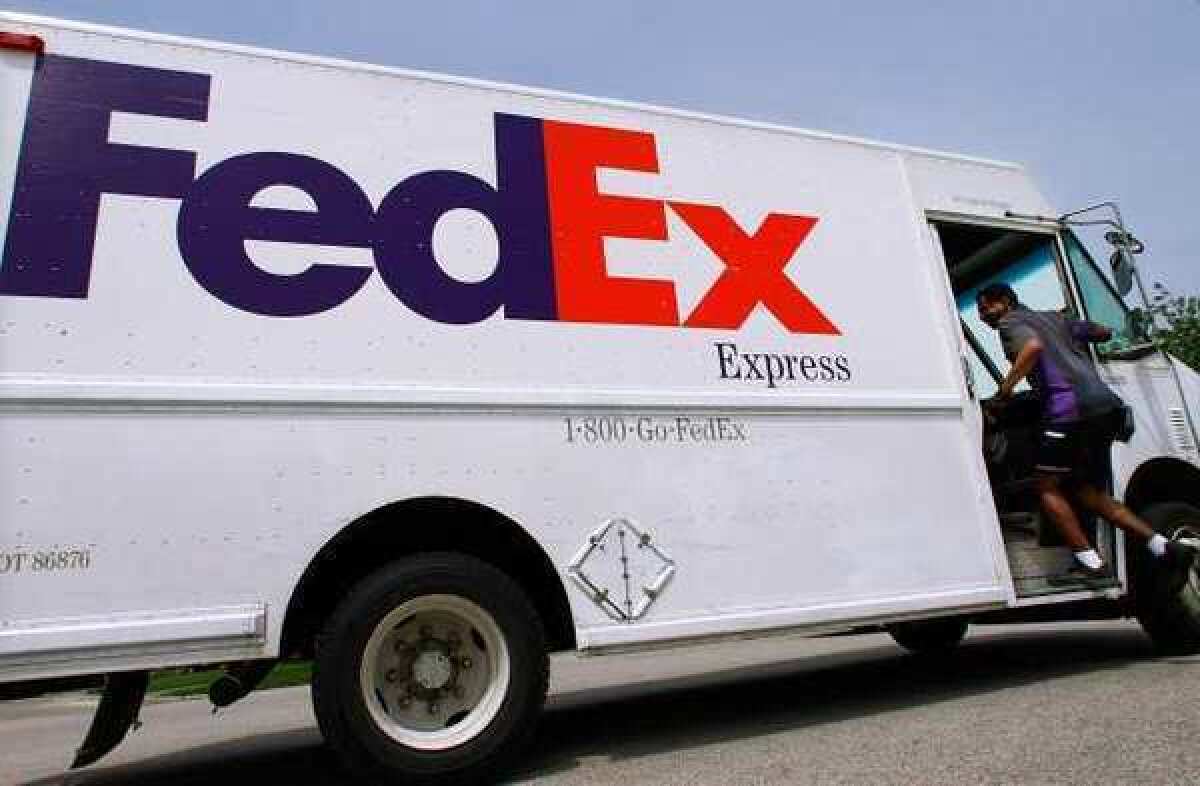FedEx offers buyouts to cut costs

FedEx Corp., the second-largest shipping company in the world, will offer voluntary buyouts to U.S. employees in order to cut costs and boost efficiency, the company said Monday.
The Memphis, Tenn.-based company didn’t say how many workers it hopes to shed, just that it will provide more details during an investors meeting in early October.
FedEx has more than 300,000 employees overall – the “vast majority” of buyouts will likely come from the company’s express and services units. Workers nearing retirement are also eligible, the company said.
In June, the package delivery giant lowered its forecast for its fiscal 2013 year due to “certain cost increases.” The company said it would announce “significant cost reduction programs” in the fall.
Capital spending for the year would fall, FedEx said, with fewer aircraft deliveries through express as more clients save money with slower methods. The company said it will focus more on its “high-margin, high-return” ground business.
Consumer confidence hit its lowest level of the year in July, as hiring and wages in the U.S. took a hit while instability in Europe and the threat of a fiscal cliff loomed.
“These headwinds include higher employee-related costs, including higher pension expenses … as well as higher depreciation costs,” said Chief Financial Officer Alan B. Graf, Jr. in a statement. “We expect to mitigate these challenges by reducing costs and improving efficiencies, and are continuing to evaluate additional actions to substantially improve FedEx Express margins.”
In its 2012 fiscal year, which ended May 31, FedEx reported a profit of $2.03 billion, or $6.41 a share, up from $1.45 billion, or $4.57 a share a year earlier.
ALSO:
FedEx says profit up 126%, but warns of weak economy
U.S. Postal Service loses $2.4 million an hour in third quarter
Consumer confidence at 2012 low on poor hiring and slow economy
Follow Tiffany Hsu on Twitter and Google+
More to Read
Inside the business of entertainment
The Wide Shot brings you news, analysis and insights on everything from streaming wars to production — and what it all means for the future.
You may occasionally receive promotional content from the Los Angeles Times.










